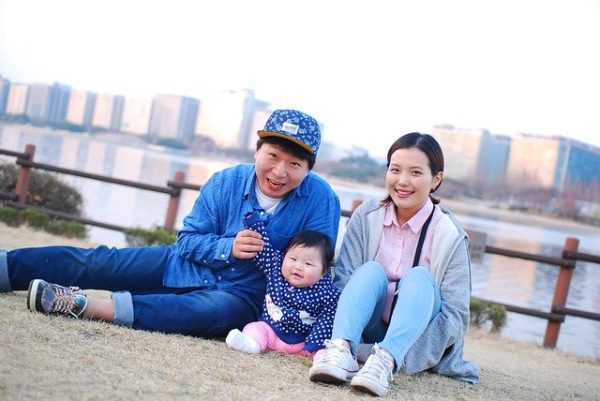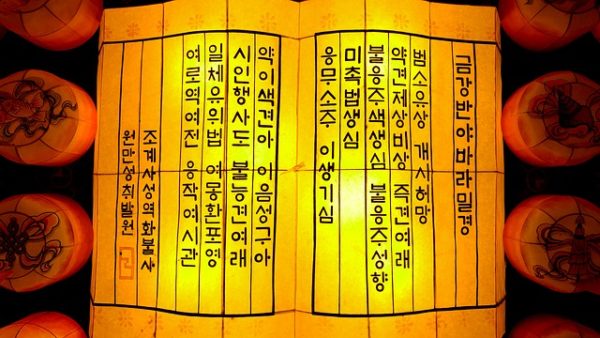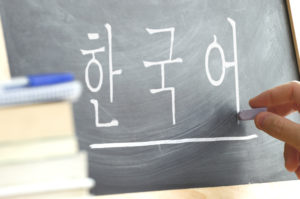Learning Korean is a great experience. But you need to know how to do it right before you begin. And there are certain ways you can make your studies a lot more efficient and effective. Spoiler alert, romanization isn’t it. So how to study Korean for the best results? This guide will show you how
Learn Hangul
The first step of learning Korean is to learn Hangul, the Korean alphabet. Don’t worry, it’s much easier than you think. You can actually learn Hangul is less than an hour.
Hangul is one of the most logical alphabets in the world. Although its characters are much different than English, you can master them using a simple trick. Hangul letters are designed in the shape of the mouth or tongue when you pronounce them. They also perfectly match Korean speech.
Because the writing system matches the pronunciation so well, you have to learn Hangul first. Otherwise, you risk not learning the language to its full extent. Worse, you could learn the wrong pronunciations and waste a lot of time having to reteach yourself Korean.
Don’t Study Korean Romanization
Romanization is the practice of writing Korean sounds with Latin letters. So, English native speakers can easily read Korean with romanization. However, relying on romanized Korean writings can seriously handicap how you study Korean.
Romanization is meant to serve as an aid. But Hangul letters still rule Korean speech and life. Learning romanized Korean first will make adjusting to Hangul harder. But, if you learn Hangul first, turning to romanization will be a piece of cake.
You’ll be tempted to favor romanized Korean texts. And you’ll definitely find it easier to write. But keep in mind that you lose the authenticity of Korean without Hangul. And you’ll limit how you can study Korean, as there are fewer materials available in only romanized letters.

Learn Korean Phrase Construction Rules
Although not all Korean grammar is complicated, constructing phrases and applying them can be challenging to many. This is because the order of words in Korean sentences differs a lot from English. You can easily learn how to study Korean phrase construction if you understand the basic rules.
The biggest difference between English and Korean is that the verb is always at the end of the sentence. ‘Subject + verb’, or ‘subject + object + verb’ is the norm when you’re constructing sentences in Korean.
This is where the old joke comes from: “you need to listen to everything a Korean person says to know what they’re talking about”.
Watch Out For the Korean Particles
Particles in Korean grammar can be a pain. A lot of Korean learners struggle with them. And there are 20 different kinds you have to look out for. Basically, you attach particles to words in sentences to show the word’s role within the sentence. Using the right particle at the right time makes you sound like a Korean local.
There are two particles you have to watch out for especially: 이(e)/가(ga) and 은(eun)/는(neun). You use both at the end of the subject. But what you use them for is very different.
- You use 이(e)/가(ga) to emphasize the subject or to express new information.
- You use 은(eun)/는(neun) to explain a topic, or to bring up something mentioned before.
Expand Your Korean Vocabulary
Understanding grammar is very important. But you need a good vocabulary to put it to use. According to the Pareto Principle, 20% of our vocabulary makes up 80% of everyday speech. This means that you only need the most common words and phrases to become fluent in Korean.
You can gain new vocabulary from a lot of sources. Many of these can be culturally relevant too. Singing Kpop songs is an excellent way to practice your pronunciation. You can also watch Korean dramas for more vocabulary and everyday speech. There are so many options for expanding your vocabulary, so choose the one you enjoy the most!

How You Speak vs. What You Say
Much like English, there are different regional accents and dialects in Korean. But you don’t have to worry about the difference between them. They are all mutually intelligible.
However, you can always put more effort into learning formal and informal speech in Korean. Since respect is a very important part of the culture, offending a Korean local is ill-advised. Using the right tone and structure according to Korean etiquette is very important. When in doubt, always use formal speech. Remember: politeness goes a long way in Korea.
How to Study Korean Effectively
The most important advice I can give on how to study Korean effectively is to have fun. The more you enjoy language learning, the more success you’ll have. And this is why we built OptiLingo to be as engaging as possible.
OptiLingo works. By relying on scientifically-proven language learning theories, we created a language learning method that brings you results. OptiLingo gives you high-frequency phrases to expand your vocabulary drastically. Thanks to this, you’ll be able to speak like a local rapidly. We also know your fluency is a product of practice. That’s why OptiLingo makes you speak, not type the language. Try FREE today!







